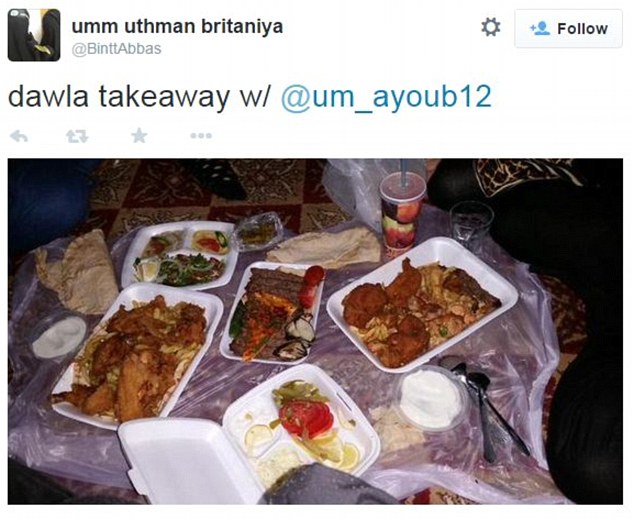ISIS and the Fish and Chip-Loving Jihadists
Credit to Author: Simon Cottee| Date: Mon, 28 Jan 2019 13:49:22 +0000
The litany of excuses given by captured western ISIS members is, by now, all-too familiar. I was tricked into going. I was just a cook. I was brainwashed. I didn’t know what ISIS was. I went there by accident. I was drugged. I went to help.
Just two weeks ago, American Warren Christopher Clark – who was captured on the 6th of January in Syria – told NBC News that he was curious to see “what the group [ISIS] was about”. Which was an odd thing to say, given that ISIS – since at least 2014 – has been all over social media telling the world, in blood-curdling rhetoric, exactly what it’s about. “I wanted to learn more about the ideology. I’m a political science major, global business minor. I like politics. I like travel, world events. That’s what I wanted to do,” he said, as though he was talking about a gap year building a school in India, rather than joining one of the world’s most notorious terrorist groups.
But of all the things to have come out of the mouths of captured ISIS members, the most ludicrous – the one that stretches credulity the most – is this: I miss fish and chips.
A day before NBC’s interview with Clark, Channel 4 News ran a short film on newly captured foreign ISIS wives and children from Hajin in eastern Syria. In one scene, a British woman, fully covered in a black burka, said how much she missed Britain – and fish and chips.
I can’t say whether captured German ISIS members have similarly proclaimed to miss schnitzel, since I don’t speak German, nor do I know if any captured Canadians have made similarly nostalgic references to poutine. I seriously doubt the latter, since you need to be drunk to even consider the idea of eating poutine, and ISIS aren’t exactly keen on booze. But fish and chips?
It’s not the first time captured British ISIS recruits have mentioned the UK’s most famous dish. Londoner Reema Iqbal, who is in a detention camp in north-east Syria, told the Sunday Times: “[I miss] fish and chips any day. First choice, fish and chips.” Sajid Aslam from Walsall, a town in the West Midlands, similarly relayed, in an email to a Daily Mirror journalist, “Walsall is known for its many chip shops – and I often long for fish and chips!” Even Alexanda Kotey, who the US State Department alleges to be likely involved in the torture of western hostages, said in one interview, “I miss fish and chips and pickled egg” – although it’s possible he was being ironic.

In Britain, on Fridays, fish and chips used to be a staple among working class families. I remember my own father, after knocking off from work early, bringing them home wrapped in the newspaper they were served in. But that was well over 30 years ago now, and I haven’t eaten them since, because even as a kid I wasn’t that keen on soggy fat fries and fish coated in batter the size and texture of a shoe.
I’m not alone in this. Fish and chip shops in Britain have been in steady decline now for decades, displaced by commercial fast food joints and chicken shops. But they remain a potent symbol of Britishness. Food, just like sex, and all the rituals, fears and desires surrounding them, gets to the root of who we are. This, in some fundamental way, explains why we’re so fascinated by the sex and food habits of other people, and why so much of what we watch on TV is focused on sex and food.
It also explains the degree of perplexed interest in the dietary habits of western jihadists back in 2014, when ISIS first came to global prominence. On this website, in December of that year, there was a feature titled “Photos of Islamic State Fighters with Their Favourite Sweets”. The Daily Mail followed suit, reporting in April of 2015 on London schoolgirl Amira Abase’s “Western-style takeaway dinner of fried chicken, chips, pizza and kebab meat”. The story centred on the ordinariness and familiarity of her food items, in stark contrast to the extraordinary ferociousness of her rejection of western values. Perhaps there would have been less perplexed interest had Abase sat down to a spread of severed heads.
It is, I suppose, possible that when captured ISIS Brits say they miss fish and chips they are being sincere. Maybe they really do miss fish and chips: perhaps it was one of their few guilty pleasures, along with weed and same-sex intercourse. Who knows? But that isn’t what they’re really trying to convey when they say they miss fish and chips. Rather, they’re making a claim to normalcy; they’re saying, to their fellow citizens back home – whose way of life they once rejected as corrupt, ungodly and soulless – that “we are just like you”. They’re trying to forge a bond of connection in an effort to elicit sympathy. Indeed, far more than expressing a dietary preference, they are making a declaration of Britishness and a plea for inclusion back into the British fold.
However, it’s hard to imagine this working. Not only because there seems to be a distinct lack of sympathy for people who couldn’t wait to go to the so-called caliphate when it was declared in June of 2014, and who told “dirty” fish and chip-eating “kuffars” to go and “die in their rage“, but because fish and chips is an anachronism, resonant of a monochrome and pre-multicultural Britain that is long gone. And because most Brits now prefer curries and kebabs.
This article originally appeared on VICE UK.